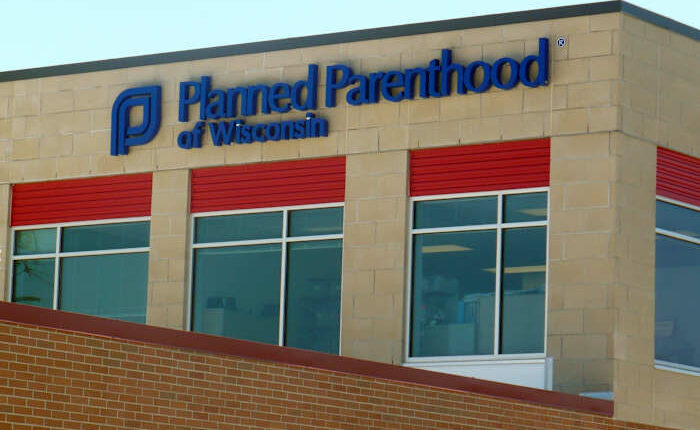Share this @internewscast.com

MADISON, Wis. – Starting next week, Planned Parenthood of Wisconsin will pause scheduling patients for abortions as it seeks ways to continue providing the service amid Medicaid funding cuts stemming from President Donald Trump’s tax and spending bill, the nonprofit announced on Thursday.
Abortion funding across the U.S. has been under siege, particularly Planned Parenthood affiliates, which are the biggest provider.
The organization previously cautioned that up to half of its clinics offering abortion services might shut down due to a restriction on Medicaid funding for Planned Parenthood for non-abortion services.
This provision was included in the tax and spending legislation President Donald Trump signed in July. Although a judge initially mandated continued reimbursements, a federal appeals court recently decided that the government could cease payments as a legal challenge to the provision proceeds.
Planned Parenthood’s offerings include cancer screenings and sexually transmitted infection testing and treatment. While federal Medicaid funds were not used for abortions, clinics depended on these funds to remain operational.
The remaining Planned Parenthood clinics in Louisiana – where abortion is banned – are scheduled to shut down at the end of this month.
Planned Parenthood of Wisconsin stated it’s aiming to see as many patients as possible before Tuesday, with the federal law going into effect on Wednesday. The organization is not scheduling patients beyond that date to continue serving other Medicaid patients. They are collaborating with providers statewide to ensure swift patient referrals and timely care.
It is also considering taking legal action, the group said.
“Planned Parenthood of Wisconsin will continue to offer the full range of reproductive health care, including abortion, as soon as feasible,” said Tanya Atkinson, President and CEO of Planned Parenthood of Wisconsin, in the statement. “Meanwhile, we are exploring all possible avenues through the legal system, our operations, and civic engagement.”
The abortion landscape has been shifting frequently since the U.S. Supreme Court ruling in 2022 that allowed states to ban abortion. Currently, 12 states do not allow it at any stage of pregnancy, with limited exceptions, and four more ban it after about six weeks’ gestation.
The bans have resulted in more women traveling for abortion and an increased reliance on abortion pills. Prescribers in states where they’re allowed have been shipping the pills to places where abortion is banned, a practice that is facing some legal challenges and is expected to attract more.
The Wisconsin Supreme Court in July struck down the state’s 1849 near-total ban on abortion, saying it was superseded by newer state laws regulating the procedure. The same day it ruled in that case, the court dismissed a lawsuit filed by Planned Parenthood of Wisconsin asking it to find the law unconstitutional.
Wisconsin’s abortion ban was in effect until 1973, when the U.S. Supreme Court’s landmark Roe v. Wade decision legalizing abortion nationwide nullified it. Legislators never officially repealed it, however, and conservatives argued that the U.S. Supreme Court’s ruling that overturned Roe reactivated it.
Planned Parenthood of Wisconsin stopped providing abortions after that ruling for 15 months before resuming them as the lawsuit over the state law played out. It has been providing abortions at three clinics in Wisconsin for the past two years.
Planned Parenthood of Wisconsin serves about 50,000 people across the state. About 60% of them are covered by Medicaid, the organization said.
___
Mulvihill reported from Cherry Hill, New Jersey.
Copyright 2025 The Associated Press. All rights reserved. This material may not be published, broadcast, rewritten or redistributed without permission.










